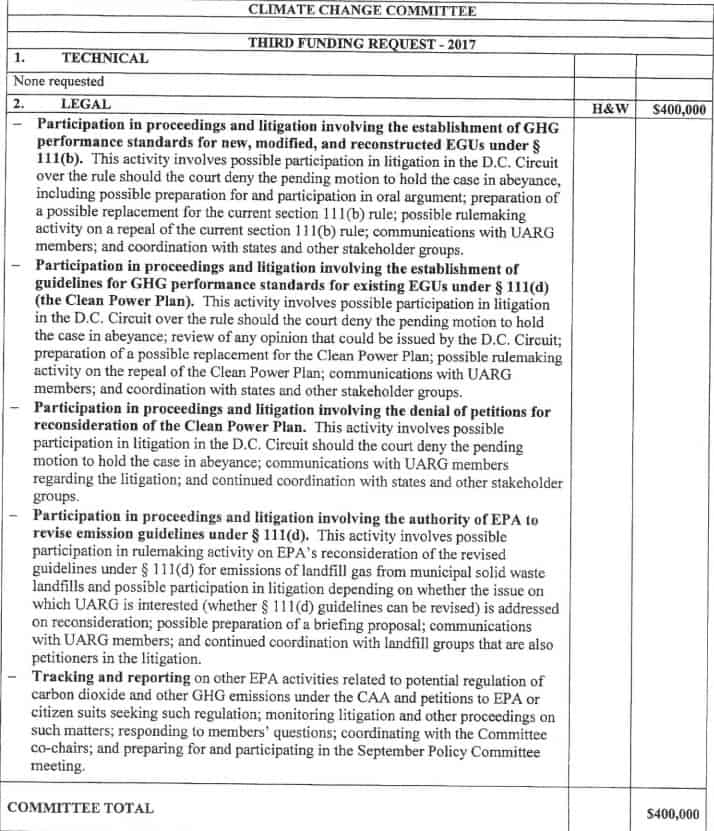NextEra Energy

NextEra’s history of scandals, investigations, lawsuits, and settlements
NextEra Energy has paid at least $30 million since 2000 in penalties and settlements on matters including environmental, safety, workplace, or health violations. The total number of ongoing complaints, violation proceedings, or lawsuits involving NextEra and its subsidiaries including Florida Power and Light (FPL) is unknown, however the table below provides an extensive list of resolved cases.
Public records and investigative reporting have revealed some of the additional cases and investigations against NextEra and its subsidiaries, including:
- Federal Elections Commission Investigation – The Commission is investigating NextEra following a complaint filed by Citizens for Responsibility and Ethics in Washington in late 2022. The complaint centered on NextEra’s role in “ghost candidate” election scandals, in which NextEra executives worked closely with FPL consultants who orchestrated spoiler candidates and a web of dark money involved in multiple campaigns. So far five people have been criminally charged in connection to the scheme, including two of the ghost candidates. Records related to the election plans also revealed that “FPL has donated more than $10 million in recent years to other dark-money nonprofits controlled by some of the same consultants — and [then] FPL CEO and President Eric Silagy has personally coordinated with those consultants on campaign contributions made through their nonprofits” as reported by Orlando Sentinel. No FPL or NextEra employees have been charged as of January 2024.
- Securities Fraud Lawsuit – The City of Hollywood Police Officers’ Retirement System and the Pembroke Pines Firefighters & Police Officers Pension Fund filed a class action lawsuit against NextEra alleging that the utility’s executives misled and withheld critical investor information that resulted in a $14 billion loss of investor value when the information became public. Former FPL CEO Eric Silagy is named in the suit. Silagy announced a surprising early retirement in January of 2023 after a year of critical media coverage focused on the utility’s role in election scandals. In December of 2021, Silagy sold $5.4 million in company stocks, one day before FPL ties to political scandals became public and the value of his holdings in the utility’s stock plummeted.
- Outage Damages Class Action Lawsuit – Judges certified another class action lawsuit against NextEra subsidiary FPL in Florida for damages related to utility outages during and after Hurricane Irma in 2017. The case remains active as of January, 2024.
- Florida Supreme Court vs. Florida Public Service Commission Lawsuit – Following Florida Power and Light’s $5 billion rate case settlement in 2021, the agreement was challenged by consumer advocates in a case against the Florida Public Service Commission. In late 2023, the Supreme Court ordered the Florida Public Service Commission to “do its job” and explain its reasoning behind the quick approval of FPL’s rate increase.

Image (credit Good Jobs First Violation Tracker)
Additional examples of ongoing investigations, complaints, and lawsuits around the country
NextEra spent $20 million on a political campaign in Maine to block a clean energy transmission project in 2021, and allegedly worked with numerous “shadow organizations” as outlined in the filed complaint and confirmed in a Maine Ethics Commission investigation in 2023. The Commission’s investigation revealed that NextEra consultants secretly financed multiple groups in a hidden effort to block a transmission project that, if successful, would have resulted in NextEra losing revenue and market share. Another Maine utility, Avangrid, filed a complaint in 2020 against NextEra with the Federal Energy Regulatory Commission, alleging that NextEra was illegally blocking a $1 billion transmission project and refused to complete upgrades at its nuclear power plant in Seabrook, New Hampshire.
In Jacksonville, Florida, federal authorities are investigating NextEra’s involvement in the failed purchase of local utility, JEA. A report released in early January 2021 by the Jacksonville City Council characterized NextEra’s activities surrounding the attempted JEA purchase bluntly, finding: “evidence of coordination among affiliates of the […] administration and NextEra/FPL that suggests NextEra was the City’s expected purchaser”. The Jacksonville Special Investigatory Committee found that the City specifically crafted a negotiation strategy to benefit NextEra. Leading up to the bid process, NextEra planned to give charitable grants to nonprofits with relationships to Jacksonville City Council members in order to curry favor with them. The utility also employed consultants with conflicts of interest in an attempt to win the bid for JEA.
In South Carolina, lawmakers requested documents from NextEra following its failed 2020 attempt to purchase the state-owned utility, Santee Cooper. Lawmakers requested “communications between NextEra lobbyists and state lawmakers; […] and records of any NextEra efforts to build public support for the deal by paying political bloggers, business groups and social media influencers.”
In December 2020, a South Florida judge allowed a class action lawsuit involving up to 9,000 local businesses against NextEra subsidiary Florida Power & Light (FPL) for an estimated claim of a minimum of $2 million due to flooding caused by FPL construction. Earlier in 2020, FPL came under fire from the Nuclear Regulatory Commission for falsifying safety information for its aging South Florida nuclear plant, Turkey Point. In 2019, FPL entered into a tentative settlement over an environmental lawsuit focused on groundwater contamination stemming from Turkey Point.
Regulatory and Legislative Control
NextEra has a decades-long record of influencing regulators and legislators to provide the corporation with a “friendly regulatory environment,” sometimes operating from the utility’s own private bar in Tallahassee, effectively rubber stamping nearly anything the power company asks for. In addition to spending millions in political donations and lobbyists every year, NextEra has a track record of retaliation against those who are not toeing the company’s line. As one example, when Former Senator Jose Javier Rodriguez introduced pro-solar legislation, then FPL CEO Eric Silagy instructed his team to “make his [Rodriguez’s] life a living hell” in an email to senior FPL executives. Those executives then worked with FPL consultants who orchestrated an elaborate “ghost candidate” scheme, propping up a candidate with the same last name to pull votes away from the senator. Jose Javier Rodriguez ultimately lost the election by less than 40 votes. Former Florida Public Service Commission Chairman Nancy Argenziano blames the loss of her job in 2010 on FPL. “They acted like thugs,” said Argenziano, “And growing up in Brooklyn, I know what a thug is.”
Examples of regulatory and legislative action favorable to NextEra and its subsidiaries FPL and Gulf Power
- Hydrogen Lobbying – In 2023, NextEra lobbied heavily at the federal level for looser rules around green hydrogen incentive rules than were ultimately proposed by the Department of Treasury in December. Examples of the utilities lobbying efforts can be seen on this NextEra landing page. At the state level, FPL registered to lobby on a Florida bill that would have allowed for additional cost recovery on hydrogen projects.
- Anti-Rooftop Solar Legislation – Records revealed that a NextEra lobbyist wrote and delivered language for an anti-rooftop solar bill in the 2022 Florida Legislative Session. The Senate sponsor received over $20,000 in political contributions from NextEra within several weeks. Despite the legislation passing, Gov. Ron DeSantis vetoed the bill after months of public pressure.
- Supporting Anti Utility Liability Legislation – Weeks after judges approved the class action lawsuit against FPL for damages caused by storm-related outages, a bill was introduced and passed by the Florida legislature that protects utilities from customer lawsuits over storm-related damages. The bill sponsor had recently received a $10,000 political contribution from NextEra. A couple of months later, FPL cited the new law in a new motion to dismiss the current class action against the utility.
- Regulatory Approval of Bill Increases, Storm Charges, and Fuel Costs – The Florida Public Service Commission has approved billions of dollars in requests from FPL in the last several years, including a $5 billion rate case settlement and over $3 billion in hurricane and fuel charges. The costs also include grid hardening costs after the legislature approved cost recovery for a yet undetermined amount in 2019. At the time, CEO Silagy said the costs could range from $25-$35 billion. All five members of the Florida PSC are currently appointed by Gov. Ron DeSantis.
- Utility Critic Pushed Out of Office of Public Counsel – After years of pushing back against FPL’s requests in the Office of Public Counsel, J.R. Kelly found himself the target of 2021 legislation that would ultimately push him out of this Florida consumer advocate role, add term limits to the position, and replace him with a former utility lobbyist, all right before FPL entered into its $5 billion rate case settlement.
- Private FPL Lounge in Tallahassee – In addition to spending millions in lobbying efforts on the books, FPL utilizes other methods of influence among lawmakers, operating an “invite only” bar/lounge area in its large office building located walking distance from the Capitol. According to reporting about the location in 2022, the location is “frequented by powerful lawmakers and staff, most of whom are considered backers of FPL’s legislative agenda and are responsible for crafting legislation directly involving Florida Power & Light.”
- Co-opting Civil Rights and Charitable Organizations – NextEra and FPL have developed a track record of donating to local charities and civil rights organizations, and subsequently mobilizing those groups in pro-utility efforts, ranging from anti-rooftop solar political campaigns to comments in support of raising customer bills. Adora Nweze, the president of the N.A.A.C.P.’s Florida conference, invoiced FPL $50,000 after she wrote an essay opposing a solar-energy rebate program and in support of a utility-backed change to state efficiency goals. Ms. Nweze has since changed her position on the issues and considers the group’s advocacy on behalf of the utility to be a mistake, according to reporting by the New York Times. She stated: “I felt that if we wanted the money, we had to do it,” she said. “The shortcoming on my part was that I didn’t have the necessary knowledge to know that it was a problem.” Additional reporting by Floodlight and The Guardian in 2024 uncovered efforts by FPL to mobilize civil rights groups and leaders in favor of the utility’s agenda, including its failed acquisition attempt of JEA.
- Control of Political Blogs – While traditional news outlets have remained critical of NextEra’s misdeeds over the years, utility executives took control of political blogs as a way to publicize pro-utility narratives, often in support of current regulatory and legislative efforts. “While portraying itself as a feisty independent outlet, the Capitolist — which aims its content directly at Tallahassee decision makers — was bankrolled and controlled by executives of the power company through a small group of trusted intermediaries from an Alabama consulting firm, according to an investigation by the Miami Herald, based on a massive leak of documents.” Until reporting by the Miami Herald, Orlando Sentinel, and Florida Times Union uncovered the financial ties between the website and FPL executives, there was nothing to indicate that the Capitolist was a paid media coverage site. FPL consultants at the Alabama consulting firm, Matrix LLC, have ties to at least six political websites posing as news outlets, according to reporting by NPR and Floodlight.
Integrity Florida Report Highlights FPL’s History of Regulatory Capture
In October 2017, the Miami Herald reported on an analysis of the state PSC authored by Integrity Florida. The report revealed how the PSC had been captured by the utility industry, and detailed many of the utility industry’s actions.
Examples of favorable regulatory action in FPL received from the report include:
- A 2017 unanimous approval by the Florida PSC for a $400 million FPL rate hike for 2017 as well as a $411 million increase over the next three years. This was despite arguments from opponents that the decision boosted company profits at a cost to consumers and allowed FPL to fund natural gas expansions that it “has failed to justify as the most necessary or cost-efficient option.”
- A 2014 cut of 90% to Florida’s energy efficiency goals and a termination of the statewide solar rebate program in 2015.
- More than $6.5 billion in losses over 15 years on natural gas hedging ultimately paid for by consumers.
Ben Wilcox, director of Integrity Florida, stated at a news conference about the research, “Make no mistake, what we’re talking about today is corruption. It’s legal corruption. It’s institutional corruption but it’s corruption nonetheless.”
Integrity Florida released “Power Play Redux: Political Influence of Florida’s Top Energy Corporations” in May 2018. Major findings from the report included:
- Florida’s four largest energy companies contributed more than $43 million to state level candidates, political parties and political committees in the 2014 and 2016 election cycles, more than half of which came from NextEra or its subsidiaries.
- While the energy companies are not supposed to use customer dollars to lobby, regulators allow them to bypass the ban by paying dues to trade groups and associations that lobby, such as the Associated Industries of Florida and the Florida Chamber of Commerce. NextEra contributed $8.4 million of the $9.4 million utilities gave to AIF and the Florida Chamber in the 2014 and 2016 election cycles.
The Miami Herald reported in March 2017 on NextEra’s incredible influence with state legislators: “Sen. Frank Artiles put on a brown jacket with “NextEra” emblazoned on the back and waved the green flag for the unofficial start to the Friday night truck race at this year’s Daytona 500 weekend…. Artiles, the chairman of the Florida Senate Communications, Energy and Public Utilities Committee, also used the event to conduct a fundraiser, which he says raised him more than $10,000. Now, Artiles, a Republican from south Miami-Dade County, is returning a favor to Florida’s largest utility.”
The article noted how Artiles scheduled two bills sought by FPL (both pieces of legislation died in committees):
- SB 1238 would have allowed the utility to charge customers for exploratory fracking in other states. The bill would have overturned a state Supreme Court ruling against FPL.
- SB 1048 would have also overturned a decision made by the judicial branch. It’s purpose was to help FPL install 88 miles of transmission lines by revising rights of way corridors and local land use regulations.
Also during the 2017 legislative session, the Energy & Policy Institute uncovered how FPL drafted language to restrict the adoption of solar power which ended up in Rep. Ray Rodrigues’ legislation to implement Amendment 4 – a ballot initiative that was approved by 73% of voters to prohibit tax assessors from increasing the taxable value of a home or business because of a solar installation.
Florida Rep. Ray Rodrigues sent an attorney with Florida House Bill Drafting an email on Jan. 23, 2017, titled “Feedback on Consumer Disclosure for Solar Amendment Implementation.” He attached a document titled “Chapter 501 Electricity Consumers Solar Energy Choice Act.” The metadata of the attached document listed Barbara J. Washington, Senior Legal Assistant at NextEra Energy Resources, the parent company of Florida Power & Light, as the author.
On Jan. 18, five days earlier, Rodrigues had accepted a $15,000 contribution to his political committee from FPL, and $2,000 from Tampa Electric.
On March 21, when his bill came up for its first hearing before the House Energy & Utilities Subcommittee, Rodrigues filed an amendment that included FPL’s language verbatim in eight different sections. Backlash resulted and the bill’s final version did not have the solar power restrictions. Gov. Scott signed the bill in June 2017.
NextEra’s Nuclear Debacle
NextEra is no stranger to nuclear debacles, the cause of much legislative and regulatory ire in Georgia (Southern’s Plant Vogtle) and South Carolina (SCE&G’s Plant VC Summer). NextEra used a similar law in Florida, known as Advanced Nuclear Cost Recovery, to charge customers for nuclear power plants before construction was completed, effectively shifting all risk to customers.
NextEra, through its subsidiary Florida Power & Light, has been attempting to build two additional nuclear reactors at its Turkey Point plant, approximately 25 miles south of Miami. In 2016, FPL suspended the construction of the two reactors, Turkey Point 6 and 7, for four years. Florida’s advanced nuclear cost recovery law allowed FPL to charge customers $281 million for the additional reactors even though they were suspended and are unlikely ever to be finished. And FPL still wanted to collect millions of dollars more.
However, in October 2017, the Florida Public Service Commission finally stopped allowing FPL to charge customers for keeping the plant mothballed. State Rep. Jose Javier Rodriguez, D-Miami, and one of the lawmakers ousted by the “ghost candidate” elections scandal, urged regulators to reject FPL’s request: “This project has been an absolute boondoggle for which FPL customers have already paid over $282 million, for a project with no assurances of ever being completed.”
Customers are also on the hook for $200 million in cleanup costs at Turkey Point due to a hypersaline plume FPL released into Miami’s drinking water supply at Biscayne Bay. Florida’s Public Counsel J.R. Kelly noted, “In the case of FPL, the record shows that several decades of management decisions led directly to the development and growth of a hypersaline plume which threatens a public source of drinking water upon which millions of citizens depend.”
Funded 2016 Ballot Campaign to Deceive Voters
In 2016, FPL was the largest funder of a Florida political action committee (Consumers for Smart Solar) that attempted to pass Amendment 1, which was a deceptive ballot initiative that would have set back the growth of solar power in Florida. Amendment 1’s passage would have paved the way for the utilities to add fees to solar customers’ bills and to cut net metering payments for the extra power they produce. The $8 million that FPL poured into the committee was all for naught when an audio recording surfaced that confirmed that Amendment 1 was a “political jiu-jitsu” campaign designed to trick pro-solar voters.
Once the truth was out, support for Amendment 1 cratered.
Weeks before election day, the Energy and Policy Institute and the Center for Media and Democracy released audio through the Miami Herald that revealed an insider speaking candidly about the deceptive Amendment 1 ballot campaign. Sal Nuzzo, the vice president of policy for a utility-funded think tank that supported Amendment 1, called the amendment “an incredibly savvy maneuver” that “would completely negate anything they (pro-solar interests) would try to do either legislatively or constitutionally down the road.”
Nuzzo also said, “To the degree that we can use a little bit of political jiu-jitsu and take what they’re kind of pinning us on and use it to our benefit either in policy, in legislation or in constitutional referendums — if that’s the direction you want to take — use the language of promoting solar, and kind of, kind of put in these protections for consumers that choose not to install rooftop.”
The public backlash was immense. Public officials and figures from former Vice President Al Gore to Jimmy Buffett urged Floridians to vote against the FPL heavily-funded amendment campaign.
The other three investor-owned utility companies, Duke Energy, Tampa Electric, and Gulf Power, also joined FPL in funding the “political jiu-jitsu” Amendment 1 campaign. Of the $26 million the political action committee received, $20 million came from the utility companies.
Floridians for Solar Choice, which led the No On 1 campaign, only had $328,926 in donations.
“This diverse group of supporters rallied together to defeat a powerful foe with unlimited funds. We were on the RIGHT side of the issue and we beat a deceitful amendment with the MIGHT of the Florida voter. Floridians want more rooftop solar and want the monopoly utilities to end their attacks on clean energy, small business and freedom of energy choice,” said Patrick Altier, president of the Florida Solar Energy Industries Association.
“Thankfully, voters were not hoodwinked by big money and slick words. And once voters get informed, they spread the word and they vote. What a waste of $26 million that could have been used to truly build solar in our state,” said Pamela Goodman, then president of the League of Women Voters of Florida.
Scuttled Acquisition Attempts in Hawaii and Texas
NextEra’s previous recent acquisition attempts have met fierce resistance, primarily due to the corporation’s behavior and lack of commitment to existing state renewable policies.
In 2014, NextEra attempted to purchase the Hawaiian Electric Company (HECO). Over the course of two years, NextEra failed to convince regulators in Hawaii that its $4.3 billion takeover proposal would benefit consumers. According to a July UtilityDive report, Hawaii regulators believed NextEra failed to show “good faith” and its promises of its “best efforts” were “too broad and vague.”
The Hawaii Public Utility Commission ultimately voted to reject the takeover. The commission said, “The Applicants [NextEra] failed to demonstrate that the Application is reasonable and in the public interest. In reaching this conclusion, the Commission focused on five fundamental areas of concern: (1) benefits to ratepayers; (2) risks to ratepayers; (3) Applicants’ clean energy commitments; (4) the proposed Change of Control’s effect on local governance; and (5) the proposed Change of Control’s effect on competition in local energy markets.”
Hawaii Governor David Ige also came out against the NextEra takeover. After the Hawaii PUC ruled against the deal, he stated, “I want to thank the Public Utilities Commission and stakeholders for their participation in this historic process. This ruling gives us a chance to reset and refocus on our goal of achieving 100 percent renewable energy by 2045.”
After the rejection in Hawaii, NextEra set its sights on Texas. NextEra’s first attempt to purchase a majority stake in Oncor, Texas’s largest transmission and distribution electric utility, ended with a scuffle between the company and regulators. First, in April 2017, NextEra’s $18.7 billion bid was rejected. Weeks later, the utility filed a request for a rehearing. NextEra called the commissioners’ actions ” arbitrary and capricious decision-making and an abuse of the Commission’s discretion,” and further said the regulators violated Texas law because the commissioners didn’t have the authority to block the deal.
In June 2017, the Texas PUC rejected the offer a second time by denying NextEra’s petition for a rehearing. Commissioner Kenneth Anderson stated, “I, too, remain unpersuaded. I’m inclined to believe our original decision was the correct one.”
Texas regulators rejected NextEra’s bid due to concerns about Oncor’s future independence from NextEra. The regulators also wanted Oncor’s financials to be separate from NextEra’s in order to protect Oncor’s credit rating.
In the rejected order, the Texas PUC stated that NextEra “failed to meet its burden”. The final order also stated, “under NextEra Energy’s proposal, the tangible benefits of the proposed transactions to Texas ratepayers are minimal in comparison to the status quo.”



